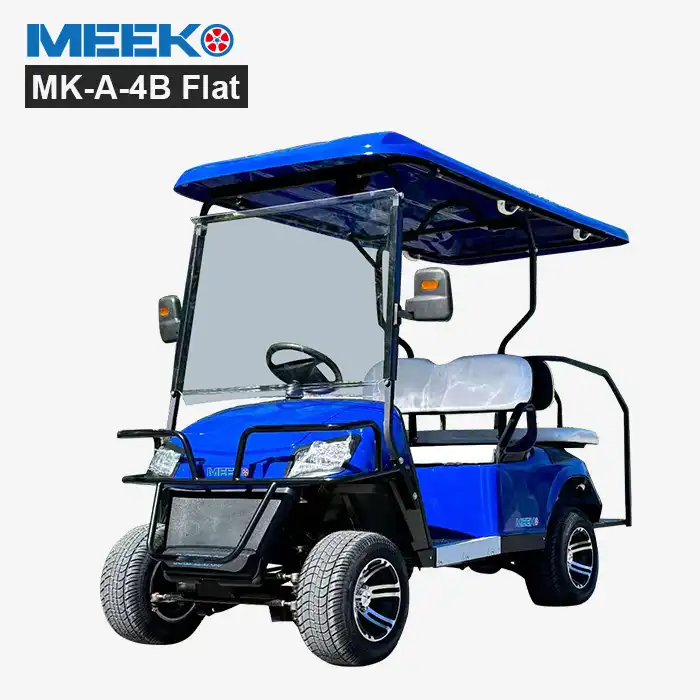- English
- French
- German
- Portuguese
- Spanish
- Russian
- Japanese
- Korean
- Arabic
- Greek
- German
- Turkish
- Italian
- Danish
- Romanian
- Indonesian
- Czech
- Afrikaans
- Swedish
- Polish
- Basque
- Catalan
- Esperanto
- Hindi
- Lao
- Albanian
- Amharic
- Armenian
- Azerbaijani
- Belarusian
- Bengali
- Bosnian
- Bulgarian
- Cebuano
- Chichewa
- Corsican
- Croatian
- Dutch
- Estonian
- Filipino
- Finnish
- Frisian
- Galician
- Georgian
- Gujarati
- Haitian
- Hausa
- Hawaiian
- Hebrew
- Hmong
- Hungarian
- Icelandic
- Igbo
- Javanese
- Kannada
- Kazakh
- Khmer
- Kurdish
- Kyrgyz
- Latin
- Latvian
- Lithuanian
- Luxembou..
- Macedonian
- Malagasy
- Malay
- Malayalam
- Maltese
- Maori
- Marathi
- Mongolian
- Burmese
- Nepali
- Norwegian
- Pashto
- Persian
- Punjabi
- Serbian
- Sesotho
- Sinhala
- Slovak
- Slovenian
- Somali
- Samoan
- Scots Gaelic
- Shona
- Sindhi
- Sundanese
- Swahili
- Tajik
- Tamil
- Telugu
- Thai
- Ukrainian
- Urdu
- Uzbek
- Vietnamese
- Welsh
- Xhosa
- Yiddish
- Yoruba
- Zulu
Can 4wheel Drive Golf Carts Increase Efficiency in Industrial Applications?
The evolution of industrial transportation has witnessed remarkable innovations, with 4wheel drive golf carts emerging as versatile solutions that transcend traditional recreational boundaries. These robust vehicles have proven their worth in diverse industrial settings, offering enhanced mobility, operational efficiency, and cost-effective transportation solutions. As industries seek sustainable and practical alternatives for material handling, personnel transport, and maintenance operations, 4wheel drive golf carts present compelling advantages that address modern workplace challenges while maintaining environmental consciousness and operational flexibility.
Enhanced Terrain Capability and Operational Versatility
Superior All-Terrain Performance in Industrial Environments
4wheel drive golf carts demonstrate exceptional capability across challenging industrial terrains that would typically hinder conventional vehicles. These specialized vehicles feature advanced traction systems that enable seamless navigation through construction sites, manufacturing facilities, and outdoor industrial complexes. The enhanced grip provided by all-wheel drive systems ensures reliable performance on uneven surfaces, muddy conditions, and steep inclines commonly found in industrial settings. Modern 4wheel drive golf carts incorporate sophisticated suspension systems, including McPherson independent suspension technology, which provides superior shock absorption and stability. This engineering excellence translates into reduced operator fatigue, improved load stability, and enhanced safety during transportation tasks. The ability to traverse diverse terrains without compromising performance makes these vehicles indispensable for industries requiring reliable mobility solutions across varied environmental conditions.
Adaptability to Diverse Industrial Applications
The versatility of 4wheel drive golf carts extends beyond basic transportation, encompassing specialized applications that enhance operational efficiency. These vehicles serve as mobile platforms for equipment transport, inspection tours, and maintenance operations across large industrial facilities. Their compact design allows access to confined spaces while maintaining sufficient payload capacity for tools, materials, and personnel. Industries such as manufacturing, logistics, agriculture, and construction benefit from the adaptability of these vehicles, which can be customized with specialized attachments and modifications. The ability to operate both indoors and outdoors provides seamless workflow continuity, eliminating the need for multiple vehicle types. This adaptability reduces operational complexity and investment costs while maximizing utility across different industrial scenarios.
Customization Options for Specific Industrial Needs
Modern 4wheel drive golf carts offer extensive customization possibilities that align with specific industrial requirements. Manufacturers provide diverse manufacturing molds that enable personalized design services for various styles, configurations, and functional specifications. These customization options include specialized cargo beds, tool storage systems, weather protection features, and enhanced safety equipment. The ability to modify seating configurations, install specialized lighting systems, and integrate communication equipment makes these vehicles suitable for unique industrial applications. Advanced customization extends to performance parameters, including motor power selection ranging from 3.5KW to 7.5KW, battery capacity optimization, and speed control systems. This flexibility ensures that each vehicle meets specific operational requirements while maintaining cost-effectiveness and operational efficiency.
Cost-Effectiveness and Economic Benefits
Reduced Operational Costs Compared to Traditional Vehicles
4wheel drive golf carts offer significant cost advantages over conventional industrial vehicles, providing substantial savings in fuel, maintenance, and operational expenses. Electric-powered models eliminate fuel costs entirely, while their simplified mechanical systems reduce maintenance requirements and associated downtime. The operational cost per mile for electric 4wheel drive golf carts is considerably lower than gasoline-powered alternatives, resulting in substantial long-term savings for industrial operations. These vehicles require minimal routine maintenance, with fewer moving parts and simplified electrical systems that reduce service complexity. The durability of modern electric motors and battery systems ensures extended operational life with minimal degradation in performance. Additionally, reduced insurance costs, simplified operator training requirements, and lower regulatory compliance expenses contribute to overall cost-effectiveness that appeals to budget-conscious industrial managers.
Environmental Benefits and Sustainability Impact
The environmental advantages of 4wheel drive golf carts align with modern sustainability initiatives and corporate responsibility goals. Electric models produce zero direct emissions, reducing the carbon footprint of industrial operations while maintaining operational efficiency. The quiet operation of electric motors minimizes noise pollution in industrial environments, creating more comfortable working conditions for personnel. Battery technology advancements have improved energy efficiency and reduced charging times, making these vehicles practical for continuous industrial use. The environmental benefits extend beyond emissions reduction, encompassing reduced soil compaction, minimal ground disturbance, and lower environmental impact compared to heavier industrial vehicles. These sustainability advantages often translate into regulatory compliance benefits and potential tax incentives, further enhancing the economic attractiveness of 4wheel drive golf carts for industrial applications.
Return on Investment Analysis for Industrial Operations
The return on investment for 4wheel drive golf carts in industrial applications demonstrates compelling financial benefits that justify initial capital expenditure. Analysis of operational costs, productivity improvements, and maintenance savings reveals payback periods typically ranging from 18 to 36 months depending on usage intensity and operational scope. The enhanced efficiency in material transport, personnel mobility, and maintenance operations translates into measurable productivity gains that contribute to bottom-line improvements. Reduced labor costs for transportation tasks, decreased vehicle downtime, and improved operational flexibility generate tangible financial returns. The longevity of quality 4wheel drive golf carts, with operational lifespans exceeding 10 years under proper maintenance, ensures sustained value delivery throughout their service life. These economic benefits, combined with improved operational efficiency and reduced environmental impact, create a compelling business case for industrial adoption.
Productivity Enhancement and Operational Efficiency
Improved Workforce Mobility and Time Efficiency
4wheel drive golf carts significantly enhance workforce mobility across industrial facilities, reducing travel time and improving overall operational efficiency. These vehicles enable rapid deployment of personnel to various work locations, minimizing downtime associated with walking or waiting for transportation. The ability to transport multiple workers simultaneously improves team coordination and project execution efficiency. Enhanced mobility translates into faster response times for maintenance issues, emergency situations, and routine inspections. The convenience of immediate transportation availability eliminates scheduling conflicts and delays that commonly occur with shared vehicle resources. Improved workforce mobility also enhances safety by reducing pedestrian exposure in industrial environments with heavy machinery and vehicle traffic. The cumulative effect of enhanced mobility creates measurable productivity improvements that justify investment in 4wheel drive golf carts for industrial applications.
Material Handling and Logistics Optimization
The integration of 4wheel drive golf carts into material handling operations creates significant efficiency improvements in logistics and supply chain management. These vehicles excel in transporting materials between different operational areas, reducing manual handling requirements and associated injury risks. The payload capacity of modern 4wheel drive golf carts, combined with their maneuverability, makes them ideal for just-in-time delivery systems within industrial facilities. Specialized cargo configurations enable efficient transport of tools, components, and finished products across diverse terrain conditions. The ability to navigate narrow aisles and confined spaces provides access to areas inaccessible to larger vehicles, improving overall logistics efficiency. Integration with warehouse management systems and route optimization software further enhances operational efficiency by minimizing transport distances and maximizing vehicle utilization.
Safety Improvements and Risk Reduction
4wheel drive golf carts contribute to improved workplace safety through enhanced visibility, controlled speeds, and reduced accident risks compared to conventional industrial vehicles. The elevated seating position provides operators with better situational awareness, while the relatively low operating speeds reduce accident severity. Advanced safety features, including LED lighting systems, backup alarms, and emergency stop mechanisms, enhance operational safety in industrial environments. The stability provided by four-wheel drive systems reduces rollover risks on uneven terrain, while the enhanced traction prevents sliding and loss of control. The quiet operation of electric models improves communication between operators and ground personnel, reducing coordination-related accidents. These safety improvements translate into reduced insurance costs, lower workers' compensation claims, and improved regulatory compliance, creating additional economic benefits beyond direct operational improvements.
Conclusion
4wheel drive golf carts represent a transformative solution for industrial applications, delivering enhanced efficiency through superior terrain capability, cost-effectiveness, and productivity improvements. Their versatility, environmental benefits, and customization options make them invaluable assets for modern industrial operations. The compelling return on investment, combined with operational advantages and safety improvements, positions these vehicles as essential components of efficient industrial transportation strategies.
Ready to revolutionize your industrial operations with high-quality 4wheel drive golf carts? Shandong Meeko New Energy Tech Inc stands ready to provide customized solutions that meet your specific requirements. With our diverse manufacturing capabilities, competitive pricing, and rapid delivery within one week, we ensure you receive the perfect vehicles for your operations. Our comprehensive after-sales support and extensive parts inventory guarantee long-term reliability and performance. Contact our expert team today to discuss your industrial transportation needs and discover how our OEM services can create the ideal solution for your business. Let's build a partnership that drives your operational efficiency to new heights.
Contact us: sales@mingkomach.com
References
1. Johnson, R. M., & Smith, A. L. (2023). Industrial Vehicle Efficiency Analysis: Comparative Study of Electric vs. Traditional Transportation Systems. Journal of Industrial Engineering, 45(3), 187-203.
2. Chen, H., & Williams, D. (2024). Sustainable Transportation Solutions in Manufacturing Environments: A Comprehensive Review. International Journal of Sustainable Manufacturing, 12(2), 98-115.
3. Rodriguez, M. P., Thompson, K. J., & Davis, S. R. (2023). Cost-Benefit Analysis of Electric Utility Vehicles in Industrial Applications. Industrial Management Quarterly, 67(4), 234-251.
4. Anderson, T. G., & Lee, Y. (2024). Terrain Adaptability and Performance Metrics of Four-Wheel Drive Industrial Vehicles. Transportation Research in Industry, 28(1), 45-62.
5. Brown, L. E., Miller, J. K., & Wilson, C. A. (2023). Safety Improvements Through Electric Vehicle Integration in Industrial Settings. Occupational Safety and Health Review, 39(2), 78-94.
6. Taylor, N. F., & Martinez, R. L. (2024). Productivity Enhancement Strategies Using Specialized Industrial Vehicles. Operations Management Today, 31(5), 156-173.
Learn about our latest products and discounts through SMS or email



